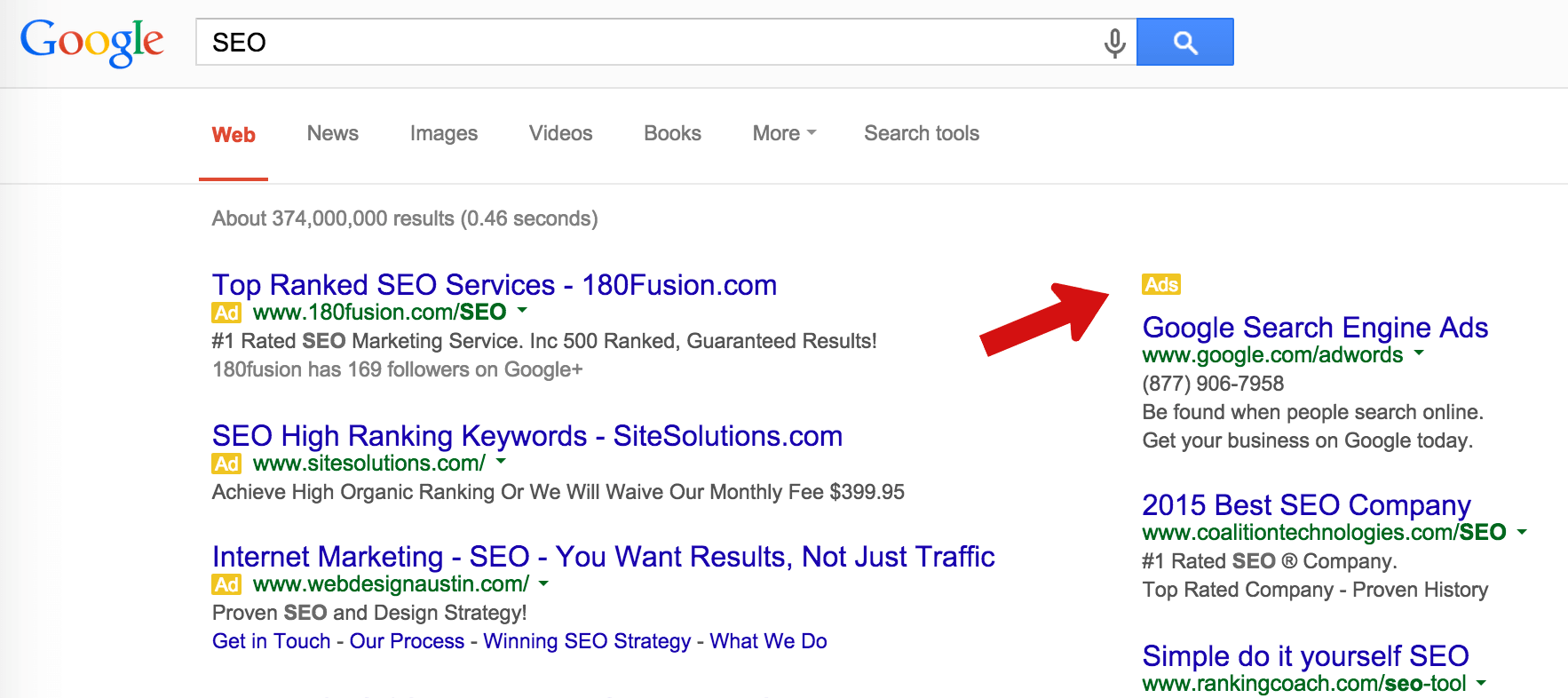SEO vs. PPC Advertising
Search engine optimization (SEO) and pay per click (PPC) are both effective ways to get more traffic to your website. However, one solution may be better for your business depending on what you’re looking for – long-term or short-term results, inexpensive advertising, or results on multiple online outlets? Many factors go into determining which type of marketing works best for a website since each method works best for different situations.
What Is SEO?
Search engine optimization is the process of improving search engine rankings organically. Google links to pages that it considers to be relevant and ultimately an expert on the search term. Search engine results that appear on Google are referred to as organic results. Since they are a non-paid result they appear to the user naturally when they perform a search query. SEO considers how search engines algorithms rank websites in their results.
Google, for instance, considers over 200 different factors when it shows a search result. Rounded Digital focuses on the primary factors in these algorithms and optimizes them – Check out our SEO Packages.
What is PPC?
Pay per click is an internet advertising model that is used to direct traffic to websites through a paid ad. A website is advertised within the sponsored listings of a search engine such as Google, Bing, or Yahoo. On Google, these websites will be marked with the Ads sign, which you can see from the image below.
They are within the top 1-3 spots of the search result page making it easy for your potential audience to see it and click into your website. You pay each time your ad is clicked.

Pros & Cons of SEO
The Pros: There is a very large, potential return-on-investment with SEO. The organic search results attract more clicks over a larger period of time than PPC, which brings in more long term conversions and revenue. SEO also works for multiple search engines. Not only will your website appear further up on Google, but it will also be ranked similarly on Yahoo and Bing.
The Cons: Depending on your target market, it may take a long time (6-12 months) before you start seeing improvements. It’s a long-term investment for any business. If Google or another search engine changes its search engine algorithm (as it has done recently with Panda 4.2) it can shuffle the search results causing a ranking to rise or fall.
There is a lot of competition within SEO especially with certain keywords. For example, a small company might be fighting against a large corporation for the same keyword.
Pros & Cons of PPC
The Pros: You receive instant traffic to your website as soon as you set up your PPC campaign. You’re able to measure and track traffic as it happens. This makes the ROI easy to calculate.
You are in control of your ad copy, the keyword searches that trigger your ad, as well as the destination URL. You can target your perfect customers by narrowing the geographic location of who will see your ad allowing you to target local customers.
The Cons: You must test it extensively – it takes a lot of time and effort to make sure you’re getting the most out of PPC. You may have to try hundreds of different keywords in order to see which ones work best. This is why it is best to hire an agency to professionally run your ad campaigns.
Every single visit/click costs, even if your website is clicked onto by mistake. Visitors don’t always equal conversions (or a new customer) which can be a pain since you’re paying for every click. The cost can also be expensive depending on the keywords. Your competition could be large corporations who have an extensive ad budget and are willing to pay more for your keywords.
SEO vs. PPC …Which One Should You Use?
Rounded Digital believes strongly in building organic search results through search engine optimization. All Rounded Digital websites are built with the best SEO practices in mind in order to make your site more indable, navigable, and readable.